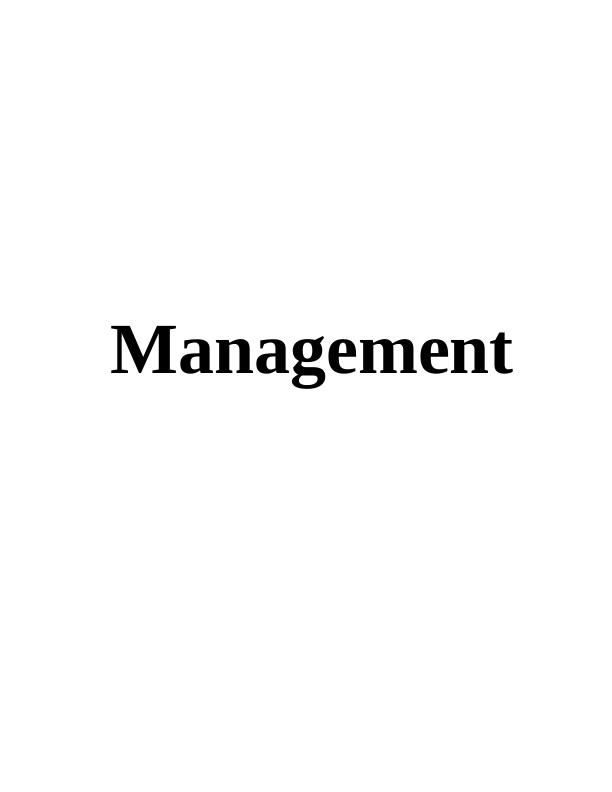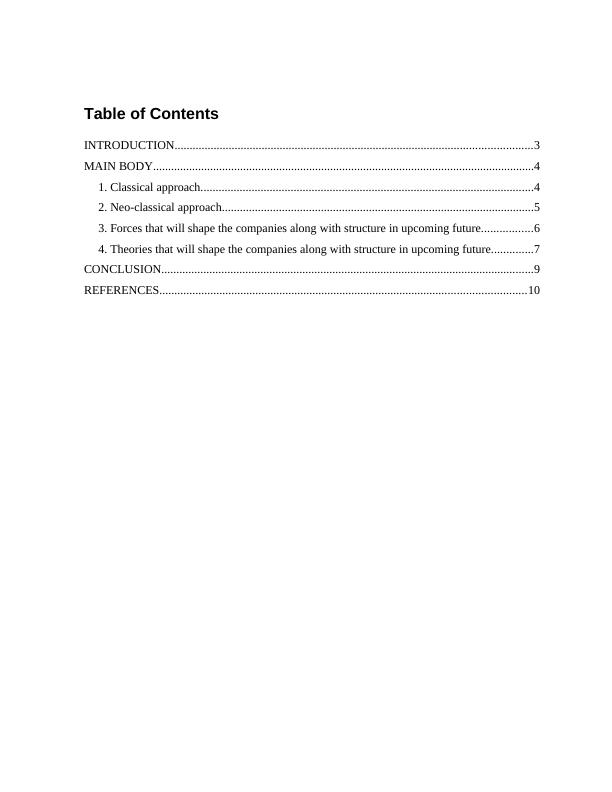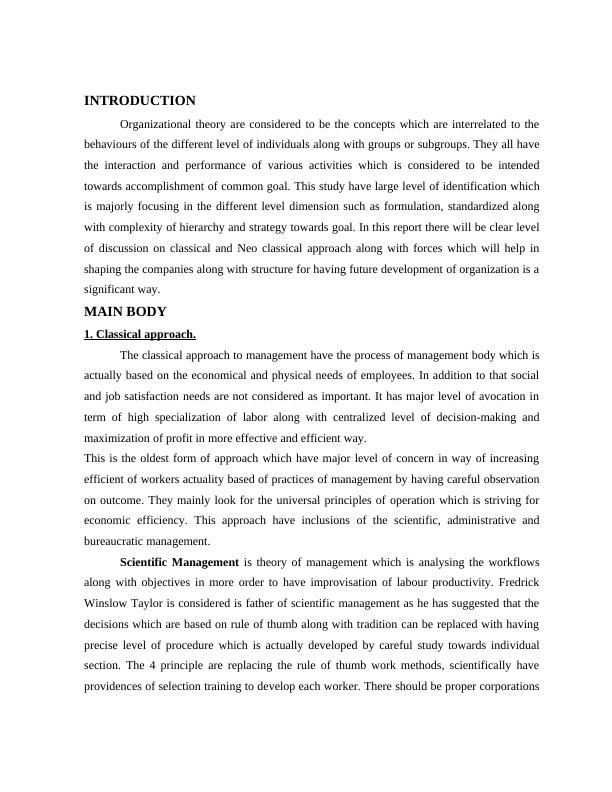Organizational Theory: Classical and Neo-classical Approach
Added on 2023-01-13
12 Pages2503 Words48 Views
End of preview
Want to access all the pages? Upload your documents or become a member.
Organisation Theory: Classical and Neo-classical Origins and Forces Shaping Organisational Structures
|10
|2567
|1
Organisation Theory: Classical and Neo-Classical Origins and Future Organisational Structures
|9
|2533
|81
Organisation Theory: Classical and Neoclassical Approaches
|10
|2451
|34
Organizational Theory: Classical and Neoclassical Approaches
|9
|2586
|53
Organisation Theory: Classical and Neo Classical Approaches
|16
|5197
|89
Organisation Theory: Classical and Neo-Classical Origins and Future Forces Shaping Organisational Structures
|9
|2486
|92




